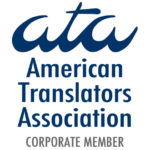Most translators work online on a freelance basis and get paid via the Internet. High levels of trust must exist between the translator and the client which, in most cases, can only be developed over time. Therefore, it’s necessary within the industry to take risks when embarking on a new working relationship.
The problem is that as most translator/client relationships are formed across the Internet, it’s relatively easy for translation scammers to take advantage, provide false information and apply for translation jobs using false identities. One such scam has been in operation for a while. Both translators and clients, if not yet fully informed, should take the time to look over the following information.
 Image courtesy of FreeDigitalPhotos.net
Image courtesy of FreeDigitalPhotos.net
Scam? What scam?
The danger of this particular scam is that the scammers involved first begin by inviting professional translators to share their CVs with them under the premise of promoting the translators’ skills and helping them make contacts find more translation work.
Scammers write to translators, asking them if they would be happy to have changes made to their CVs to make them more attractive to prospective clients. They promise to put translators in contact with new clients and make improvements to their CVs at the same time. These scammers then steal the CVs they receive from professional translators, make changes to the names and addresses on those CVs and use them along with their fake identities to get work under the guise of professional translators.
How do the scammers manage to trick you?
In order to cover their tracks, most of the scammers change the name and surname on the CV they steal and ALL of them change the email address associated with that CV to a standard Gmail or Hotmail email.
The difficulty in spotting these scammers is that they go to a lot of trouble to create a fake identity within the translation industry by using their fake identities to join translation forums. Sometimes, they even steal the real names of other bonafide translators within the industry to develop these fake profiles and further develop a convincing charade. In the few cases when they do actually translate something using their fake profiles, they use Google translate and other such online tools.
Where’s the proof that these scams exist?
The identities of some of these scammers have been revealed online in an attempt to expose fraudulent activity in the industry and hopefully bring it to an end. One particular example comes from Adriana Aaron.
What are the concerns surrounding PayPal and other e-payment services?
To gauge a better idea of what an invoice from one of these scammers might look like, take a look at the invoice sent by Julia Korf (one of the scammers whose fake identity, or at least, one of them, has already been revealed). Scamming clients with fake translator identities is a lot easier to do when charging for those services via e-payment platforms, such as PayPal. Most PayPal accounts are managed using basic Gmail and Hotmail email addresses. There’s no need to have a professional identity/business setup to send payment requests and this means that scammers have an easier time when tricking clients into financing them for paid translation projects.
The list of PayPal email addresses here are those which have already been associated with known translation scammers. Stay clear of anyone claiming to be a translator using these email addresses and feel free to share other emails that can be added to the list if you have also been the victim of translation fraud.



